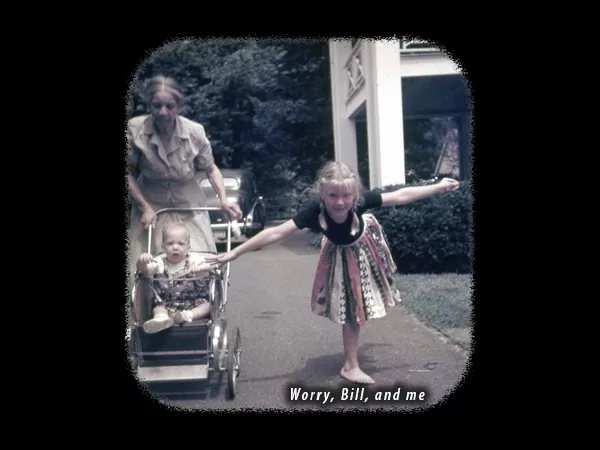Tribute to Worry

Mildred became a part of our household shortly after my younger brother, Bill, was born in 1953. We always called her “Worry.” I can’t remember if she arrived with this nickname, or if we made it up. Bill was a baby, and I was not yet seven years old. We just always called her “Worry.” As children growing up in the fantasy of 1950’s New England, we didn’t ask a lot of questions. Worry was there one day and stayed for many years.
Worry was a tall, statuesque woman. Her hair was tied back in a bun. She wore a light gray uniform. She was of African-American descent, with light skin. Her high cheekbones and aquiline nose suggested Native American ancestors.
Worry never talked about her past, but I slowly learned she was married to a physician; they’d had one son together. After her husband died, she worked in a succession of live-in domestic jobs in various cities. One such place was Tucumcari, New Mexico. I was fascinated with the melodic sound of “Tucumcari” and memorized it. I’ve never met anyone since then who has even lived there.
As a student of history, I now know there were few workforce opportunities in the 1940’s and 50’s for women. Worry was educated (she had lovely handwriting) and was married to a physician; still, she had to work as a domestic employee. She had no family except her son, Victor, who lived in New York. Despite this, Worry maintained her independence and did not leave us to live with her son until very late in life.
Worry raised my brother Bill, made excellent southern dishes for us, ironed our clothes, and generally kept the house in order. Her fricassee chicken was my favorite meal. She introduced us to “creamed eggs on rice” and salmon croquettes. Worry was a better cook than my mother, whose party fare was legendary but couldn’t prepare a weeknight meatloaf.
Worry speaks to me today of dignity. She took care of herself and her charges while sharing little about herself. Her work was not “about her,” but about who she was caring for. I’m certain I caused her headaches over the years, but she loved us anyway. Worry understood her “place” in the universe and accepted it with dignity.
My father was from Mississippi and grew up during the Jim Crow era. His relationship with Worry was always one of respect within her role as a household employee who cared for his children. In retrospect, this is an image right out of “The Help” and “Gone with the Wind.” Worry was always respectful of my parents.
Looking back on this, I see my father and Worry both were products of their time. Slavery was long gone, but the Jim Crow code kept the races separate and Black and African Americans from reaching beyond domestic status for many years. It must have been difficult for Worry to transition from the status afforded to a physician’s wife to that of a widow with limited opportunities. I admire her for not only surviving but also for holding her head high the whole time.
When Worry left us to live with her son, she could barely walk. Her stockings were still fastened in a knot above her knees, and she always wore slippers. Her hair was pure gray.
We remember you well, Worry, as a woman of your time — and ahead of it, too. Today, perhaps she would still choose to be a caregiver; but maybe not. There are more doors open now. No matter what, I’m happy she could shed that gray uniform for good.






